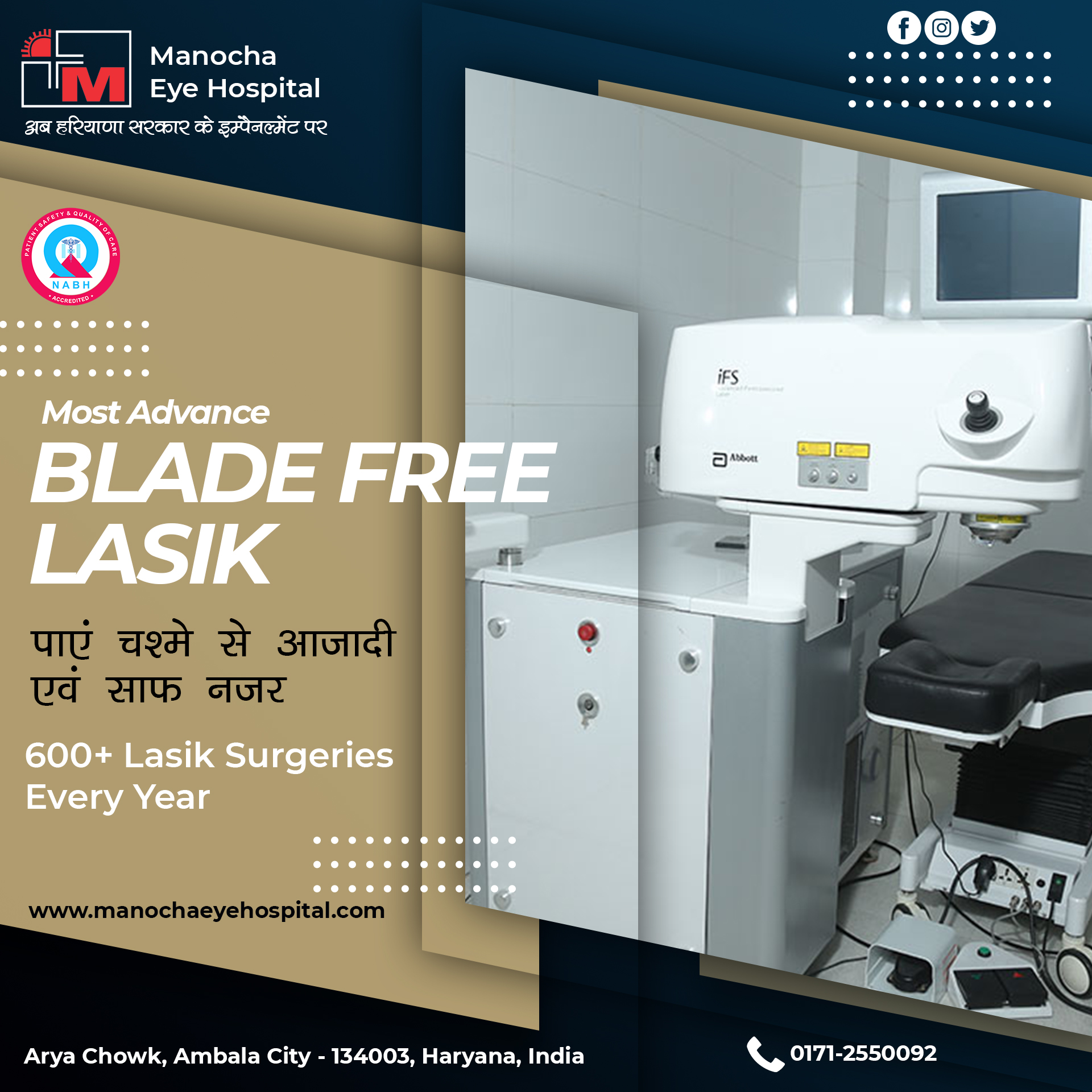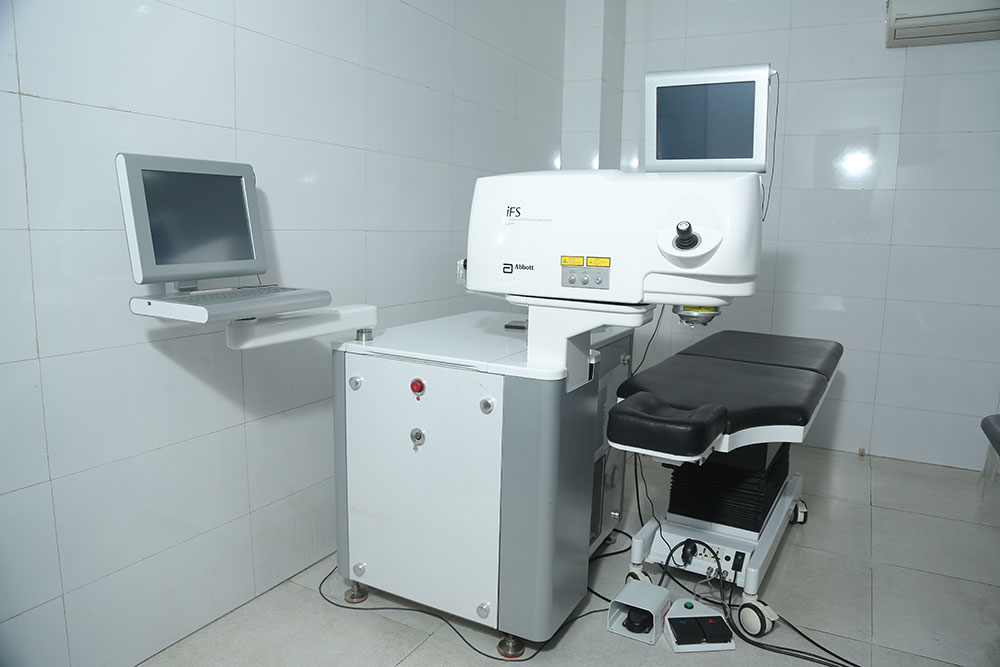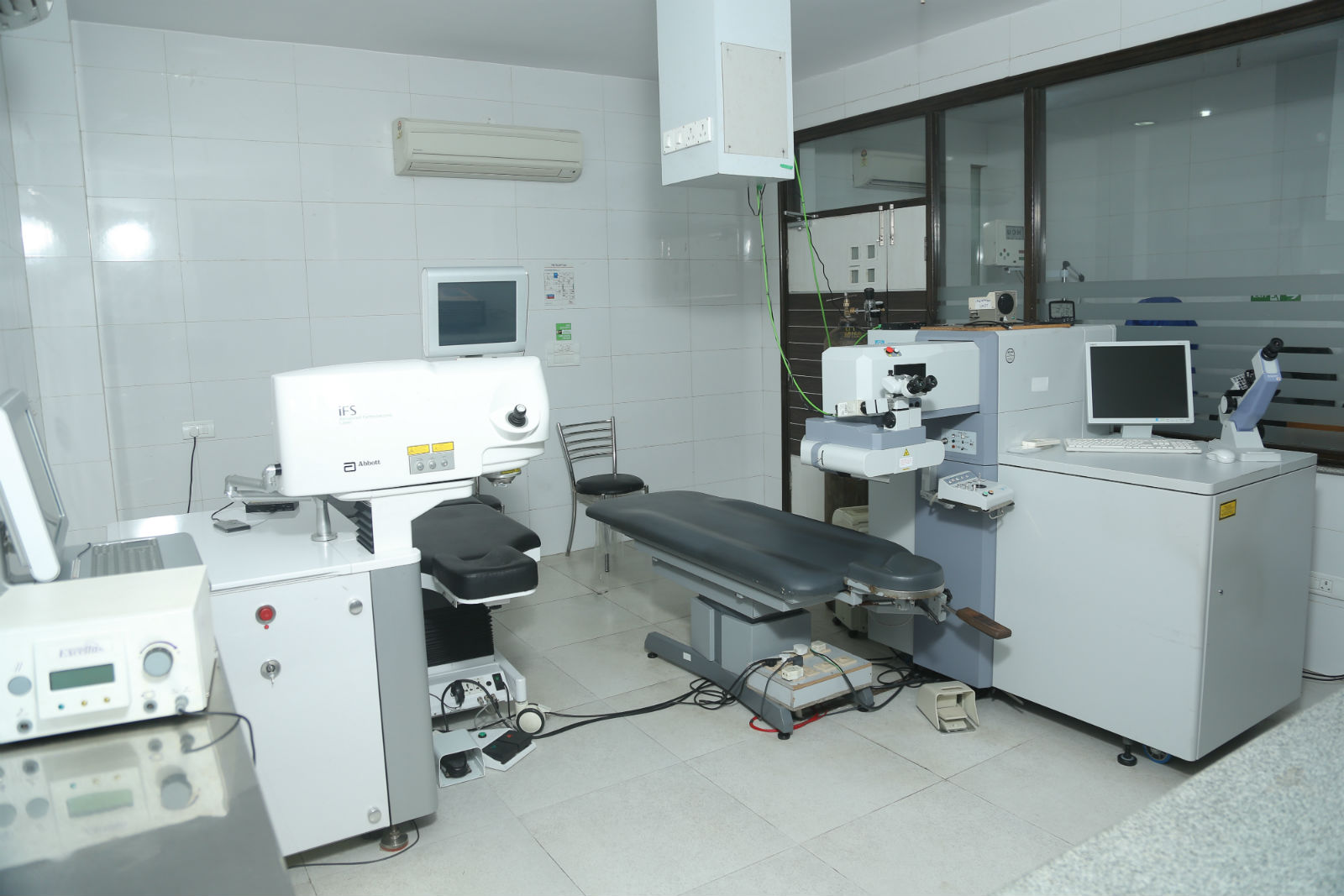
Lasik Laser
When glasses or contact lenses become a trouble in your life, LASIK surgery offers an alternative that can give you a clear vision again. The innovative technology treats the most common types of refractive errors that you may know as nearsightedness (myopia), farsightedness (hyperopia) and astigmatism. Changes in the structure of your eye that alter your vision may relate to age or to coping with the challenges that result from the way that you use your eyes. LASIK surgery offers a highly successful approach to permanently improving your vision without ever having to use glasses or contact lenses ever again.
Manocha Eye Hospital is the best & most trusted eye hospital in Ambala for Lasik Laser.
600+ Lasik Surgeries Every Year
What Refractive Problems Does LASIK Laser Eye Surgery Correct?
You may have used contact lenses or glasses to help you cope with the inconvenience of not seeing well, and perhaps now you are considering LASIK procedure as a superior way to improve your vision. Following are the refractive problems that a LASIK surgery will help you correct:
- Myopia
- Hyperopia
- Astigmatism
Bladeless Laser Procedures
In the Blade-Less technique, there are no blades working on the eye. The whole procedure is done by the use of one or a combination of two lasers; Femto Laser and Excimer Laser. The precision of Femto Laser is to the levels of 5 microns which means that if a human hair is 60 microns, a Femto laser can cut 6 layers in that hair and that is impossible with a blade. Therefore, Bladeless technique gives greater precision, better quality of vision and more safety.

Advantages of Blade Free Lasik
The various advantages of LASIK LASER are as follows:
- Faster LASIK procedure time, increasing patient comfort
- Stronger, more secure LASIK flaps
- Improved corneal sensitivity
- Fewer dry eye symptoms
- More predictable corneal flap thickness
- Decreased risk of corneal abrasions during surgery
- Decreased risk of induced astigmatism after LASIK
Why to choose Manocha Eye Hospital
Manocha eye hospital is the most trusted eye hospital for Lasik Laser surgery because of the following reasons :
- One of the oldest hospital in Ambala performing Laser surgeries for last 19 years.
- Most advance Lasik Laser Machine by ABBOTT.
- Wer are performing average 600 Lasik Laser surgeries every year
- Affordable Prices
- Good surgical outcome
- Experienced Eye Surgeon.
Myths / Frequently Asked Questions about LASIK
- Do not touch your eyes with fingers. Mop tears with soft tissue paper. Do not use handkerchief
- Keep your eyes closed as much as possible after laser treatment on the laser day.
- Eye drops to be started on the laser day. Pull lower lid and place one or two drops on the eye in the gap between the lid and the eyeball
- Wear dark glasses continuously throughout the day for the first 3 days. On the first three nights, use protective eye shields provided to you by the LASIK centre. From 4th day onwards, use dark glasses only when outdoors up to 15th day. The purpose of dark glasses is to prevent your hands from rubbing the eyes. It also serves as a small protection against dust. Exposure to sunlight or room light is not harmful to the eyes.
- Stay in clean environment- Avoid kitchen and smoke for 1 week.
- Mobile phones may be used from the next day
- Computer use, watching TV, reading etc. can be started from the 2nd day in moderation. There may be strain on eyes initially which is normal.
- Take a bath neck down for 1 week. During this period, clean your eyelids lightly with boiled cotton once in the morning to remove deposits from the lid margin, taking care not to touch the black portion (cornea) of the eye. Wipe face lightly with a clean towel without rubbing your eyes.
- From 2nd week onwards, take a normal bath from head downwards with your eyes closed as a precaution. A little water entering your eyes now is a very low risk.
- After 2 weeks, you can return to normal bathing
- Light activities can be done the very next day. Do not do heavy exercises for 7 days. Sports activities can be done after 1 month.
- You can have your normal food after laser treatment.
- Avoid car driving for 2 days, and driving a bike for 2 weeks.
- Do not splash water into eyes for 2 weeks. Splashing water into the eyes as a habit is best avoided as it washes away all the natural oils of the eye, inducing dry eyes. Splashing to wash away some dust particle is acceptable
- Smoking and drinking to be avoided for two weeks.
- Do not use any eye make up for 2weeks. Threading of eyebrows may be done after 2 weeks taking care to avoid too much pressure on the eye.
- Facial massage should be avoided on the eye area for 3 months.
- Avoid vigorously rubbing your eyes for 3 months.
- Avoid swimming, water diving for 3 months.
- Cosmetic contact lenses can be used after 3 months.

